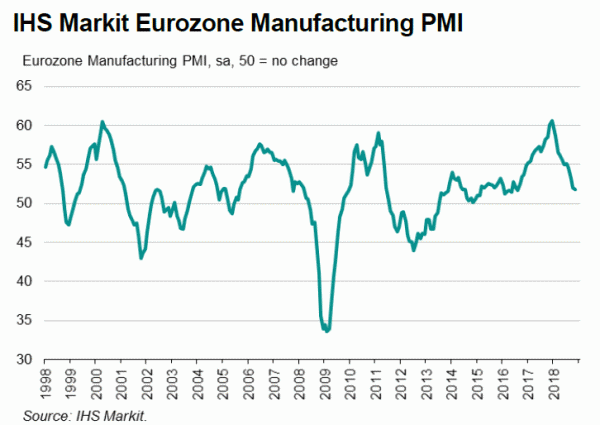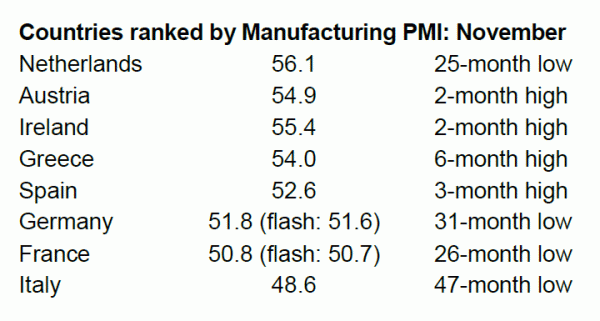Eurozone PMI manufacturing is finalized at 51.8 in November, revised up from 51.5, down from October’s 52.0. It’s also the lowest since August 2016. Markit noted that growth of production is only marginal as demand continues to falter. Also, business confidence remains weakest in around six years. And, the euro area’s ‘big-four’ economies posted the lowest manufacturing PMI readings of all countries covered by the survey during November.
Among the countries, Italy PMI manufacturing stayed in contraction and dropped to 48.6, a 47-month low. France PMI manufacturing dropped to 50.8, a 26-month low. Germany PMI manufacturing dropped to 51.8, a 31-month low.
Commenting on the final Manufacturing PMI data, Chris Williamson, Chief Business Economist at IHS Markit said:
“November’s PMI data underscore the extent to which manufacturing conditions have become more challenging, indicating that production could act as a drag on the eurozone economy in the fourth quarter.
“Manufacturers reported that demand is now falling in Germany, France and Italy, while only modest growth was recorded in Spain.
“The darker outlook is linked to trade wars and tariffs as well as intensifying political uncertainty and has led to increased risk aversion and a commensurate cutting back on expenditure, notably for investment. Producers of investment goods such as plant and machinery reported the steepest drop in demand in November, with reduced capital spending by companies compounded by on-going disruption of business in the autos sector.
“Hopes that the soft patch may prove short-lived are countered by business optimism about prospects for the year ahead remaining among the gloomiest seen since the sovereign debt crisis in 2012, suggesting companies are bracing themselves for further weak demand in the coming months.
“The survey also indicates that households could rein-in spending if companies continue to pull-back on their hiring, adding to downside risks to the outlook.”


